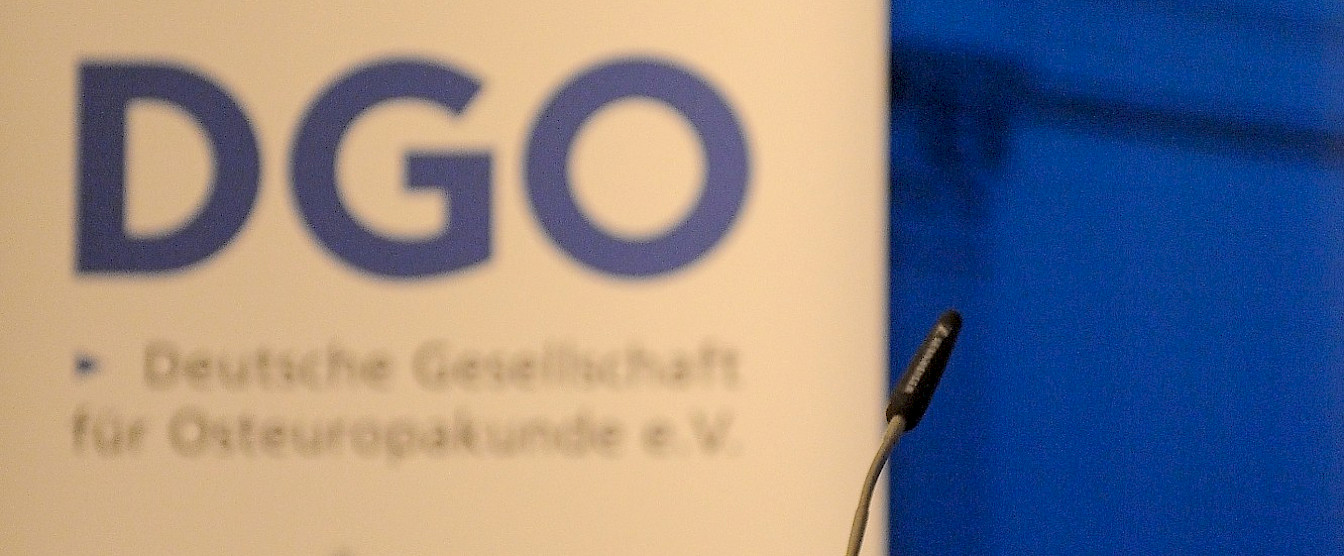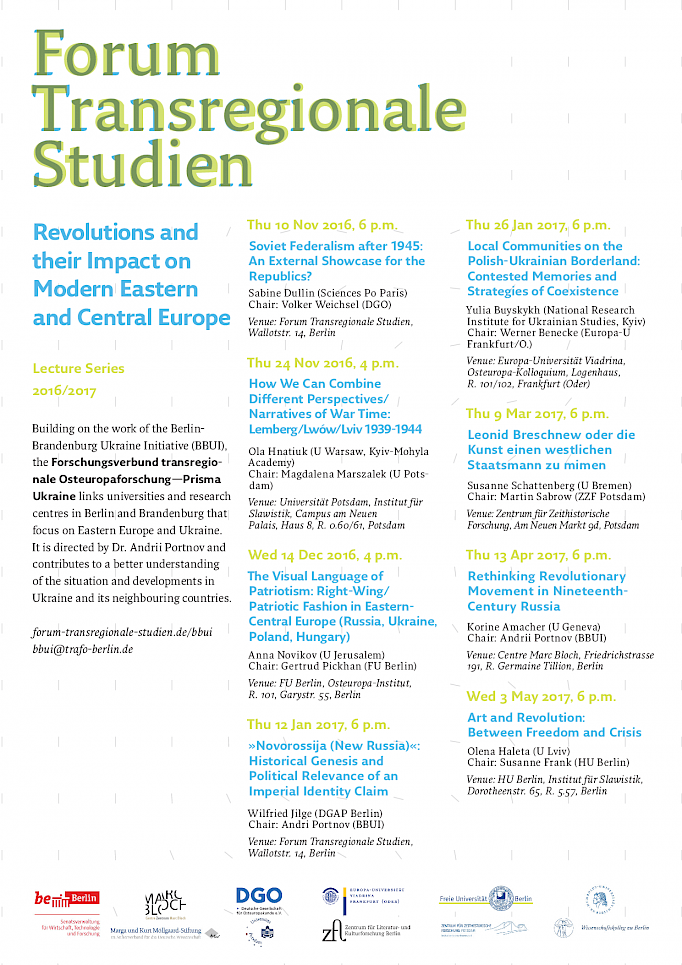
Lecture Series: Revolutions and their Impact on Modern Eastern and Central Europe
Art and Revolution: Between Freedom and Crisis
Revolution took place
not only on the squares and on the streets,
but also in offices of thinkers and rooms of dreamers.
Yuri Mezhenko, Ukrainian literary critic and founder of the National Library
The end of the 1910s and the beginning of the 1920s was one of the most interesting, inspiring and complicated periods in the history of Ukrainian culture and literature. At a time of political perturbations and disasters, epochal scientific discoveries, achievements and disappointments of philosophical thought, many authors perceived the revolution not only as a political change but also as an aesthetic occasion and as a period of uncertainty, freedom, and choice. In opposition on the one hand to the classical tradition, and on the other to the new Soviet propaganda, they were trying to treat the revolution as a chance for a modern Ukrainian culture based on urban identity, institutional development, and the formation of new meanings and values. During the period when “the old is dying and the new cannot be born” (A. Gramsci) literature became one of the most important ways of naming and giving sense to the new reality. However, starting with the statement of two stages of revolution as destructive and creative, literature eventually experienced two stages of reality as creative and destructive, which was reflected in the movement from the musical poetics of the 1910s to the silent poetics of the 1920s.
Olena HALETA is a professor at the Department of Literary Theory and Comparative Studies, I. Franko University of Lviv, and at the Department of Cultural Studies, Ukrainian Catholic University in Lviv. Her areas of specialization are modern and contemporary Ukrainian literature, cultural and literary anthropology, cultural identity and mechanisms of its literary articulation. Haleta worked as a senior research fellow and director (2001-2012) at the Centre for the Humanities at the Lviv University, heading the project “Anthropos: open digital archive of humanities”, organizing a series of lectures (“Solo Singing – New Voices” and “University Dialogs”) and editing academic volumes on “Formalism”, “Sappho”, “Irony”, and “History and/of Literature”. Her recent book “From Anthology to Ontology” (2015) is dedicated to the anthology as a means of representation of Ukrainian literature of the late 19th – early 21st centuries. She was a research fellow and visiting professor at American and European universities (in the USA, Canada, Germany, Austria, Poland, and Croatia), and at the Woodrow Wilson International Center for Scholars in Washington DC.
Die Veranstaltung findet im Rahmen der Vortragsreihe "Revolutions and Their Impact on Modern Eastern and Central Europe" statt, die vom interdisziplinären Forschungsverbund "Prisma Ukraina" ausgerichtet wird. Zu diesem Verbund gehören Forschungseinrichtungen in Berlin und Brandenburg, die sich mit Osteuropa und der Ukraine beschäftigen. Der Verbund ist am Forum Transregionale Studien angesiedelt und baut auf der Arbeit der Berlin-Brandenburg Initiative (BBUI) auf, deren Partner die DGO ist. Er organisiert Veranstaltungen und lädt Wissenschaftler aus Osteuropa und anderen Regionen nach Berlin ein. Ziel ist es, zu einem besseren Verständnis der Entwicklungen in der Ukraine und ihrer Nachbarländer beizutragen.
Anmeldung: prisma[at]trafo-berlin.de
Veranstaltungsprogramm
Veranstaltungsprogramm (PDF, 520 kB)
Datum:
03.05.2017, 18:00 Uhr
Ort:
Humboldt Universität zu Berlin
Institut für Slawistik, Raum 5.57
Dorotheenstraße 65
10117 Berlin
Sprache(n):
Englisch
Veranstaltungsprogramm (PDF, 520 kB)

Veranstalterin:
Deutsche Gesellschaft für Osteuropakunde